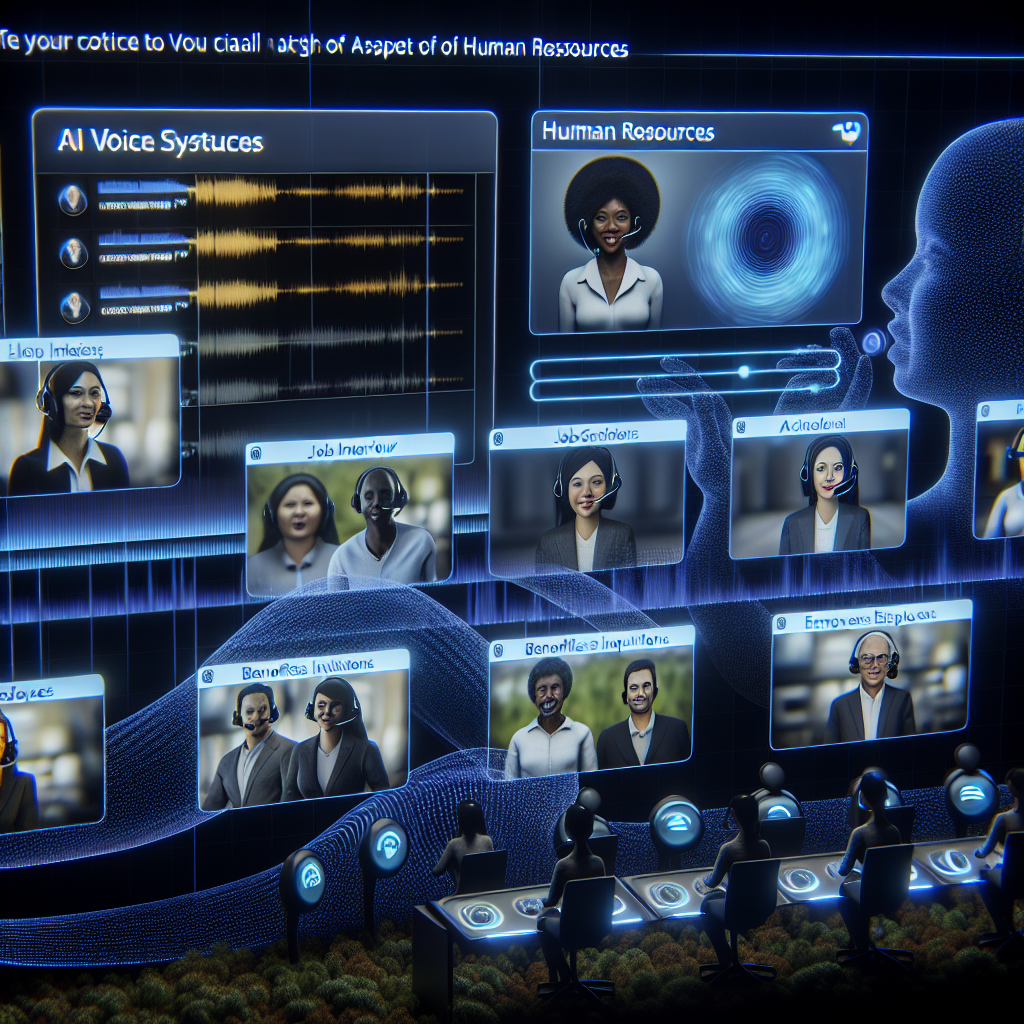Introduction
As organizations increasingly strive for efficiency and innovation, the integration of artificial intelligence (AI) within various business functions has gained considerable traction. One area where AI has proven particularly impactful is human resources (HR), especially in voice-enabled applications. The use of AI-enabled voice calls can streamline processes, enhance communication, and ultimately improve the employee experience. This article explores the most effective use cases for AI-enabled voice calls in HR, specifically focusing on interview scheduling, benefits inquiries, and employee support. By focusing on these areas, HR departments can leverage technology to optimize their workflows and better serve their employees.
Interview Scheduling
One of the most labor-intensive tasks within HR is interview scheduling. Traditionally, this process involves multiple back-and-forth communications between candidates and the HR team, often leading to delays and a less-than-ideal candidate experience. AI-enabled voice calls can revolutionize this aspect of recruitment by automating the scheduling process. Utilizing natural language processing and machine learning, AI can interact with candidates in real-time, understanding their availability and preferences.
For example, an AI voice assistant can initiate a conversation with a candidate after their application is reviewed. It can inquire about their available times for an interview and automatically check the calendars of relevant interviewers. If there are any conflicts, the AI can suggest alternative times, ensuring a seamless scheduling experience. Furthermore, this automated process can free HR professionals to focus on other critical tasks, ultimately speeding up the recruitment cycle.
Moreover, AI-enabled voice calls inherently improve communication. By providing candidates a quicker and immediate way to schedule interviews, organizations can enhance their engagement with potential hires. This responsiveness not only reflects positively on the company’s brand but also significantly increases the likelihood of attracting top talent in a competitive market.
Benefits Inquiries
Another area where AI-enabled voice calls shine is in benefits inquiries. Employees often have questions regarding their health plans, retirement options, and various perks offered by the organization. Traditionally, these inquiries have required contacting HR representatives, which can result in long wait times and frustration for employees. In today’s fast-paced environment, quick access to information is paramount.
AI voice assistants can serve as the first point of contact for employees seeking information about benefits. By empowering employees to ask questions via voice, such as “What is my health plan eligibility?” or “How do I enroll in the retirement program?” AI systems can quickly process these requests and provide accurate answers in real-time. In doing so, they reduce the burden on HR staff, enabling them to focus on more complex queries that require human intervention.
Additionally, AI can assist in educating employees about their benefits options. For instance, if an employee expresses confusion regarding different health plans, the AI could provide a summary of each plan’s benefits, costs, and coverage. This setup fosters a culture of informed decision-making among employees, ensuring they can take full advantage of the benefits offered by the organization.
Employee Support
Employee support is a vital component of any organization’s HR strategy. When employees feel supported, they are more likely to be engaged, productive, and loyal. AI-enabled voice calls can play a critical role in enhancing employee support by providing immediate and personalized assistance.
Imagine an employee facing a workplace challenge, such as a disagreement with a colleague or needing help with career development. Instead of waiting for a scheduled meeting with an HR representative, they could simply engage with an AI voice assistant. This assistant can initially guide the employee through their concerns, offering resources or suggestions based on the nature of the issue. For instance, if an employee is seeking guidance on professional development, the AI could outline available training programs or opportunities tailored to their skills and aspirations.
Moreover, AI voice technologies can be instrumental in gathering employee feedback. For instance, following company-wide initiatives or changes in policy, the AI can reach out via voice calls to ask employees about their experiences and gather data on satisfaction levels. This feedback can be invaluable for HR departments looking to assess the effectiveness of their programs and make necessary adjustments.
Enhanced Accessibility and Inclusivity
In addition to the practical benefits of using AI-enabled voice calls in HR processes, there are broader implications regarding accessibility and inclusivity. Organizations today are focused on creating environments where all employees feel welcome and supported. Voice technology can help break down barriers, particularly for individuals who may find traditional text-based communication challenging due to language barriers, disabilities, or other factors.
By incorporating voice interactions, organizations can cater to a wider range of employee needs and preferences. AI voice assistants can support multiple languages, allowing non-native speakers to access HR resources in a way they understand. Furthermore, voice technology can be beneficial for employees with disabilities who may struggle with typing or reading. This focus on inclusivity enhances the overall employee experience and fosters a culture of respect and understanding within the workplace.
Conclusion
The integration of AI-enabled voice calls in human resources presents a transformative opportunity for organizations looking to modernize their HR functions. By automating interview scheduling, streamlining benefits inquiries, and enhancing employee support, HR departments can significantly improve their efficiency and service quality. Moreover, the added elements of accessibility and inclusivity create an environment where all employees feel valued and understood. As businesses continue to evolve, leveraging AI in HR practices will not only benefit the organization but also ensure employees experience a streamlined and supportive workplace. Embracing these technologies is not merely an option; it is increasingly becoming a necessity for organizations aiming to thrive in a competitive landscape.

